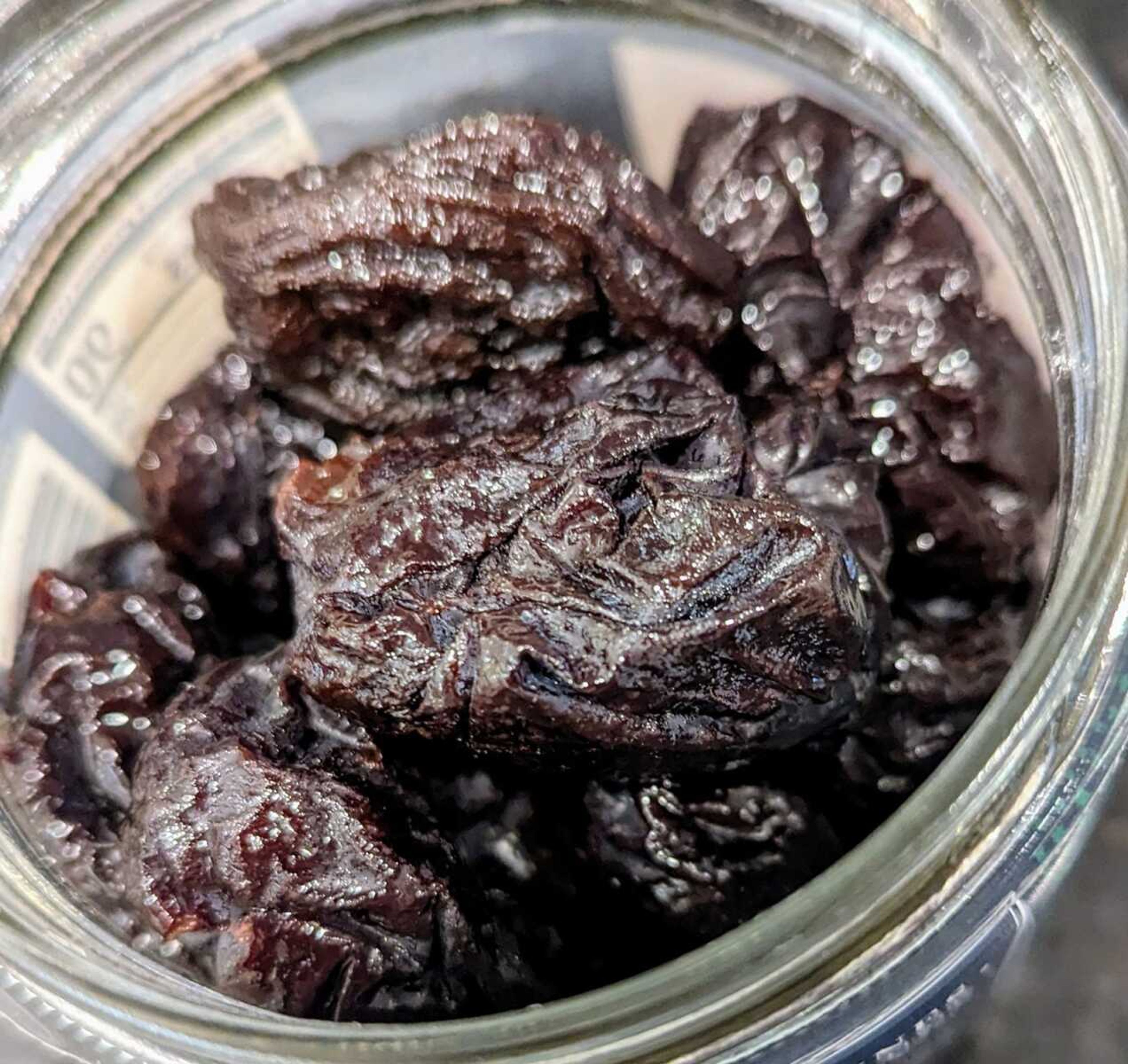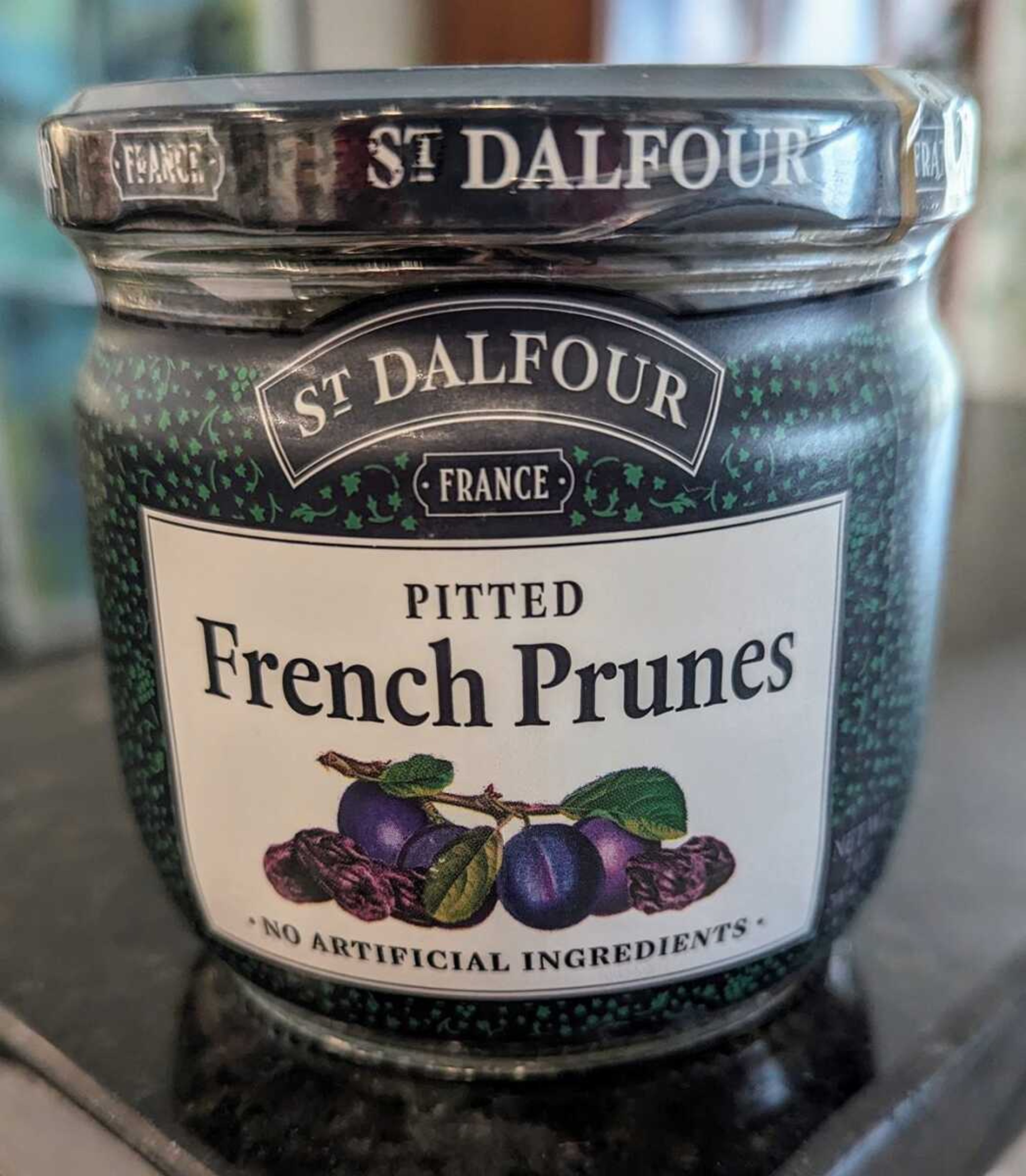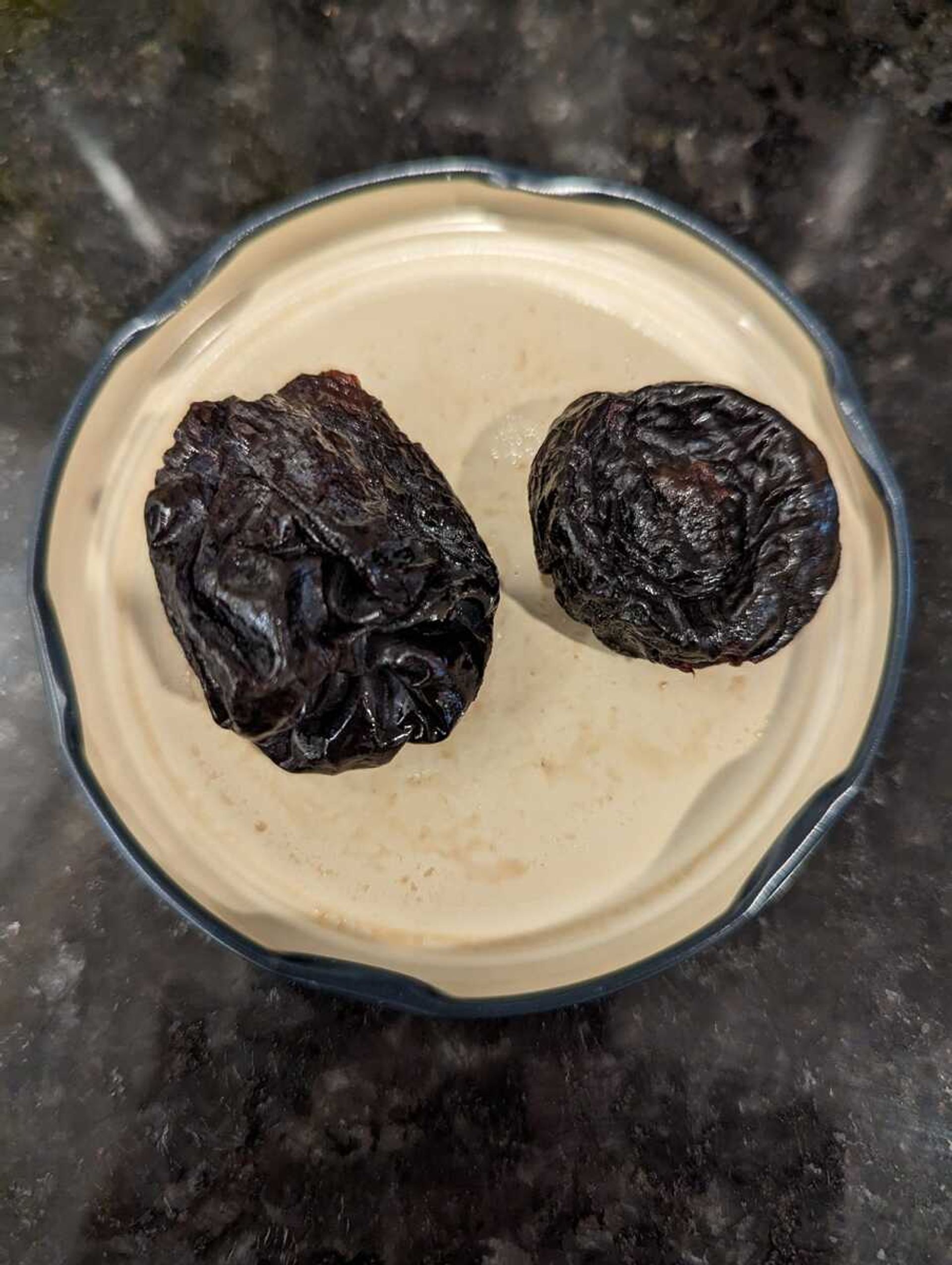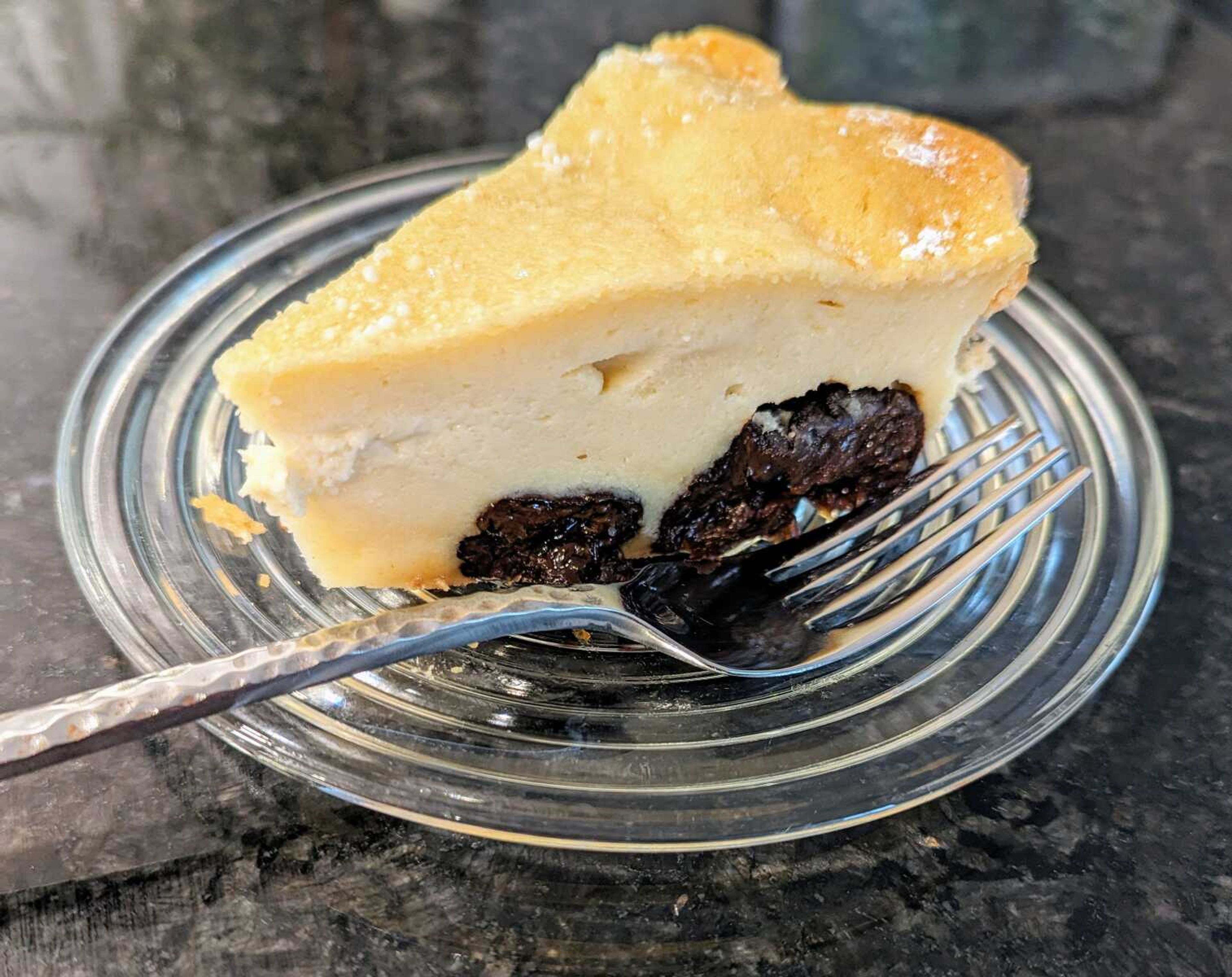Don't wrinkle your nose at prunes
"They're still rather badly wrinkled, you know." That's the punch line in a classic commercial created back in the 1960s by Stan Freeberg. It featured a man who complained that he did not like prunes because they had pits and were wrinkled. He's urged to try one of Sunsweet's new pitted prunes and, complying, agrees that they're moist and sweet. ...
"They're still rather badly wrinkled, you know." That's the punch line in a classic commercial created back in the 1960s by Stan Freeberg. It featured a man who complained that he did not like prunes because they had pits and were wrinkled. He's urged to try one of Sunsweet's new pitted prunes and, complying, agrees that they're moist and sweet. But, uttering the punch line, he's still clearly bothered by the wrinkles. The commercial ends with an announcer intoning, "Today the pits, tomorrow the wrinkles."
The spot, one of any number of clever ads written by Freeberg, dubbed the father of funny advertising, may well have represented his greatest public relations challenge: getting Americans to change their attitudes toward prunes.
In the U.S. prunes are perhaps the Rodney Dangerfield of dried fruits. The object of jokes, usually bathroom ones, they get no respect. Viewed primarily as something old folks habitually resort to, they are valued more for their power than their culinary potential.
In fact, some years ago, the prune industry in California, where the lion's share of prunes sold in this country are grown, after much stewing about the negative implications of their product, decided to experiment with changing its name — to dried plums. It didn't work. Not surprisingly, like roses, prunes by any other name are still the same, but apparently don't sell any better. So the growers have gone back to the original designation despite the possibility of its sometimes unhappy associations.
None of this could have happened in France, where it is no exaggeration to say prunes are treasured. As award-winning food writer Aleksandra Crapanzano observes, for the French, prunes are "the stuff of legend." The distinguished New York Times columnist Florence Fabricant, a recipient of the French National Order of Merit, contends that in France prunes are held in the same esteem as foie gras, which is saying a lot. There's even a prune museum in Agen in the southwest of the country, which produces the best French prunes, where prune connoisseurs (yes, there are many) flock to learn more about what they regard as the premiere dried fruit. The town also sponsors an annual prune show complete with prune-tinted lighting for the Town Hall.

French infatuation with prunes is not something new or merely the consequence of good marketing. It goes back to the 13th century. That's when crusaders brought back plum trees and seeds and Benedictine monks crossbred them with local varieties to create Les pruneaux d'Agen, the version so special it is the only dried fruit to enjoy protected status in the European Union.
And well it should. Prunes figure in many haute cuisine dishes. Consider, for example prunes stuffed with Roquefort cheese, loin of pork stuffed with prunes, Coq au Vin upgraded with prunes, prunes marinated in Armagnac and served over ice cream, prunes layered with mascarpone and shaved chocolate, a riff on tiramisu, prunes simply poached in red wine, a dish not hard to find in Paris bistros, or perhaps the ultimate French delicacy, prunes stuffed with prune puree. And don't forget the classic recipe popularized by the Silver Palate cookbook, Chicken Marbella.
There are many other recipes in the half dozen or so prune cookbooks, a couple containing almost 100 recipes, on the market. Clearly, in the hands of a talented cook, prunes can be, in the best sense of the term, a moving experience.

Far Breton
This recipe for the traditional dessert of Brittany, is adapted from Aleksandra Crapanzo's "Gâteau."

- 14 pitted prunes
- 1/2 cup Armagnac, Cognac or rum
- 1 cup cake flour
- 1/2 cup sugar
- 1/4 teaspoon salt
- 3 eggs
- 2 cups cream
- 1/3 cup melted butter, cooled
- 1 tablespoon raw sugar
Steep prunes in liquor for 24 hours. Whisk together flour, sugar, and salt. Whisk eggs until blended and add to flour mixture. Add one-third of cream and melted butter and whisk until smooth. Incorporate remaining cream in two additions. Let sit 10 minutes. Scatter prunes, including remaining liquor, in a buttered 6-cup gratin dish. Whisk batter again and pour over prunes. Bake at 400 degrees for 30-40 minutes until just firm and lightly browned. Sprinkle with raw sugar and let stand 30 minutes before serving.
Tom Harte's book, "Stirring Words," is available at local bookstores. A Harte Appetite airs Tuesdays at 7:42 a.m. and 5:18 pm on KRCU, 90.9 FM. Contact Tom at semissourian.com or at the Southeast Missourian, P.O. Box 699, Cape Girardeau, Mo., 63702-0699.
Connect with the Southeast Missourian Newsroom:
For corrections to this story or other insights for the editor, click here. To submit a letter to the editor, click here. To learn about the Southeast Missourian’s AI Policy, click here.











